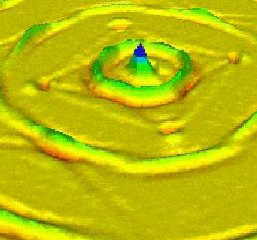Appearance or Disappearance? Loopholes in the Cetacean Matrix
APPEARANCE OR DISAPPEARANCE? Loopholes in the Cetacean Matrix
Monthly Disappearance Corner for Insecure Writers

My favorite margin edge: barnacles lining a humpback’s mouth as she blows
Birds do it; Bees do it;
Even educated fleas do it.
Let’s do it. Let’s fall in love.
Ella Fitzgerald after Cole Porter
Blowing One’s Horn
THAR SHE BLOWS is a culturally frowned-on expression these days. When Hermann Melville used it in Moby Dick, 1851, he was quoting the phrase by whalers of his day who scoured the northern seas for whale harvest. But Ahab also had revenge in his heart for the white whale he sought who had taken his knee on a previous whale hunt.

World whaling nations
Cetacean Nation or Scrambled Ambergris
Constellation Cetus, which we see now in our winter northern sky, is a crossover from the southern hemisphere, a sea monster pardoned by Helios/Sun after being frozen by Perseus—with the aid of Medusa’s head which turned it to stone—and sent to shine next to Eridanus, the celestial river which connects northern and southern sky hemispheres. Poseidon created Cetus to represent the power of the deep sea, and sent the sea monster on many missions of destruction. He met his death when Poseidon punished Queen Cassiopeia for her never-ending boasting, and ordered the powerful creature to destroy the Ethiopian coast. Catalogued by astronomer Ptolemy, c.A.D.100 in his Almagest, he was the sea monster sent by Neptune to devour Andromeda, chained to a rock as a sacrifice. In Greek myth, Cetus was turned to stone but released to the Cosmos, to shine forever.

Celestial sea ‘monster’ Ketos/Cetus the Whale clambers into northern skies to remind us of our oceanic origins
Cetus is the fourth largest constellation in the night sky, occupying 1,231 square degrees. Cetus is intertwined with Aquarius, Aries, Eridanus, Fornax, Pisces, Sculptor and Taurus. The constellation has four main stars and nine deep space objects, including one Messier and three meteor showers.
Superstitious sailors believed in cetus as the bringer of a great storm or misfortune on the ship. They associated it with lost cargo, the presence of pirates, or being swept off course, and avoided any talk of it aboard ship. Cetus equated to having a woman on board. Both were considered unlucky—as the Sea was the Sailor’s only Mistress—so presence of both presaged superhuman disaster.
Ambergris forms the basis of human—female perfumes; whale oil (blubber) used for lanterns until the advent of kerosene in 1860. Theoretically no nation needs to kill for fuel any more; but ‘scientific assessment’ continues within the whaling nations, despite statistics of decline.
We IWSGers are no strangers to deadlines! ❤ Superstitious? Well, yeah, kinda. Goes with being a Writing Introvert. We like symbolism, but a gathering storm of politicos has consequences for all of us.
As our SciFi guru Alex, says, we need to grow up; let the skittles fall where they may—get on with our latest writing project—and start cherishing the special creatures in our midst.
Before it is too late.
According to world wolf/bear and whale survival statistics, the deadline has passed: it’s already later than we think.
©2018 Marian Youngblood












Whaling is about as pointless as killing tigers. It does need to stop.